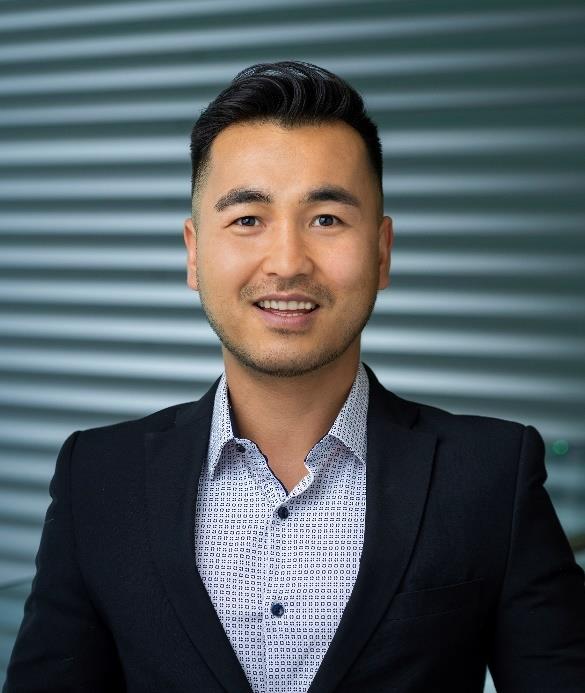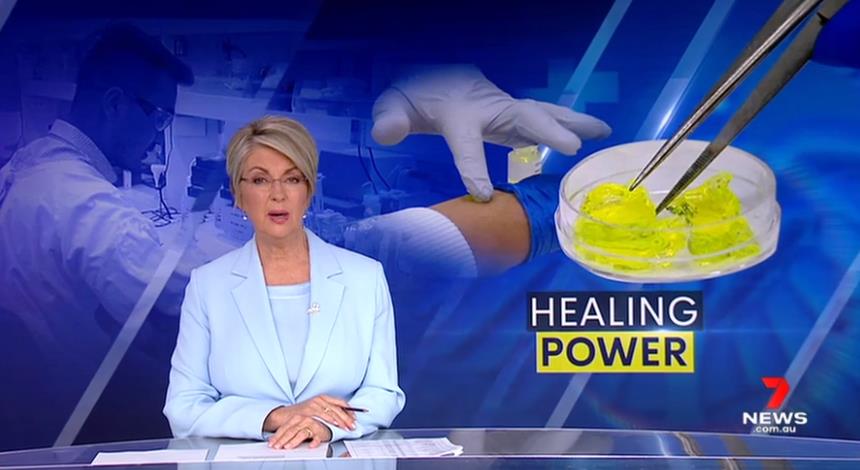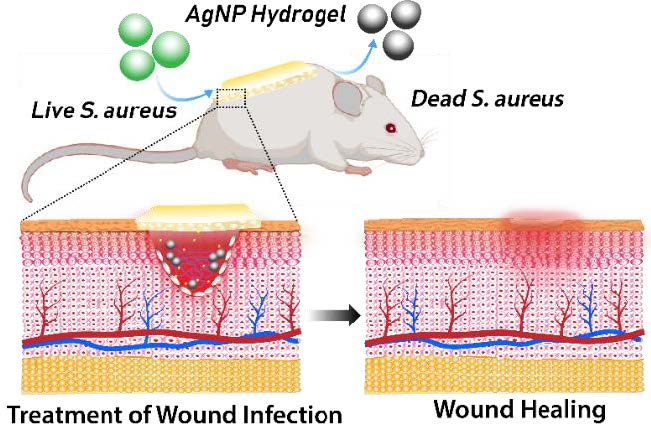 Dr Hanif Haidari
Dr Hanif Haidari
Future Industries Institute,
University of South Australia
Dr Haidari has completed his PhD in the field of Biomedical Sciences from the University of South Australia in 2021. His PhD thesis was titled “Development of stimuli-responsive silver nanoparticles delivery system for infected wounds”. Currently appointed as Research Associate at Future Industries Institute, University of South Australia, Hanif’s research interest focuses on understanding the safe interactions of nanomaterials with biological interfaces and devise newer technologies for treatment of wound infection. He has strong background in nanomaterials development which has enabled him to develop numerous prominent delivery systems for silver nanoparticles that are specific to wound pathogens offering a safer and more efficacious treatment strategy. His research interest aims to: develop smart antibacterial hydrogel specific to the wounds, provide a targeted and more localised treatment for wound infection, reduce bacterial resistance, and develop a diagnostic dressing to detect early signs of infections in real-time. Hanif has established a strong collaboration with renowned biomaterials scientists and biologists across UniSA, SAHMRI, and RMIT to tackle the challenges of chronic wounds using novel approaches. Overall, Hanif aims to create safer and smarter technologies with the capacity to rapidly diagnose bacterial infection while simultaneously providing on-demand treatment to effectively eliminate pathogenic bacteria without negatively affecting the surrounding tissue.
Hanif Haidari graduated from the University of South Australia with a Bachelor of Medical Science with Honours with Class l in 2017. His research interests drove him to undertake his PhD in biomedical science and engineering under the supervision of Prof Sanjay Garg, Prof Allison Cowin, Prof Krasimir Vasilev, and Dr Zlatko Kopecki. This multidisciplinary project offered him the ability to work across different institutes, bringing a range of expertise together to uncover and devise a safer solution for the management of chronic wounds. During his PhD, his contribution in the field of nanomaterials centered around enriching the understanding of physicochemical properties of nanoparticles and their interaction with bacteria to facilitate higher killing. Further, he was able to demonstrate strategies to develop a controlled release delivery system for targeted and safer elimination of bacterial biofilms. Hanif’s high-quality research contribution was recognized through multiple internal and external awards and recognition. He was a recipient of a highly prestigious State Government Scholarship ($17500) to support his PhD studies on top of his UniSA scholarship and has been recognized internally through multiple seminar presentations and symposiums across UniSA. His recent highlight includes a joint invited speaker to an international controlled release society chapter in 2021, providing valuable insights into current development and future potentials of nanomaterials in biomedical applications.

Hanif’s research impact was shown in the UniSA newspaper and a special feature in Channel 7’s news describing it as a “game changer for patients”.
Hanif’s PhD research resulted in 7 first-authored and 1 co-authored high-quality publication published in leading biomaterials journals. His prominent publications include ACS Applied Materials &Interfaces, Acta Biomateriala, and other leading journals in the field. His recent publication in Wounds Practice and Research has been recognized as Literary award for 2020 and the impact of his research program has attracted significant interest in community engagements including UniSA newspaper and Channel 7 news. His recent research output has shown an excellent capacity to eliminate bacterial infections while accelerating wound healing using a highly advanced novel antibacterial hydrogel.

Hanif’s research contribution has uncovered major roadblocks associated with biofilm eradication and has attracted local and international attention, collaboration, and funding. Notably, his recent antibacterial hydrogel has been published in Acta biomaterialia showing immense potential for the treatment of wound infections while significantly improving healing by modulating the inflammatory response and cell apoptosis.
The hydrogel performed far superior compared to commercial industry standard silver dressing. Inspired by his latest finding, the project resulted in a Channel 7 funding to further progress towards potential clinical translation which he is currently employed on. Hanif’s currently employed as a Research associate in Regenerative Medicine at UniSA working with Prof Cowin and Dr Kopecki, with whom he aims to expand the current progress by developing a novel smart antibacterial hydrogel that is responsive to bacterial infections. He has developed an antibacterial hydrogel that offers controlled release triggered by the changes in the wound microenvironment resulting in faster release and killing when the pathogens are present within the wounds. This targeted delivery offers localized and safe treatment of infected wounds without developing bacterial resistance and could revolutionize the way wound infections are managed. In addition, in collaboration with RMIT and SAHMRI, he is also prototyping a novel diagnostic wound dressing that are able to provide real-time information on the status of wound healing including the early signs of infection by temperature and pH changes. The dressings are expected to provide quick and reliable information for clinicians to diagnose infection. Collaborating with another biomaterialist at RMIT, Hanif is also trying to formulate black phosphorus as a novel antibacterial agent to treat chronic wounds. He brings a range of experience and expertise in the development of novel antibacterial agents and is passionate about his research to make further development toward clinical translations.
Hanif has been heavily involved in a range of committees, including acting as executive member of UniSA FII Student Association (FIISA) from 2017 -2021. He currently serves as a secretary for the UniSA FII Early Mid-Career Researcher (EMCR) group. He has proactively been involved and engaged with Higher Degree Researchers (HDRs) from different disciplines and promoted research among undergraduate students through a university-wide Open Day (2018, 2019), Campus Day (2019), and other public science events. He is a member of numerous scientific societies including Australasian Wound and Tissue Repair Society (AWTRS) 2019 – 2022, Controlled Release Society (CRS) 2018 – 2022, and a past member of the Australian Pharmaceutical Science Association (APSA) 2018. He is honoured to have received the Young Investigator Award from the Australasian Wound & Tissue Repair Society (AWTRS) in 2021 and has recently become involved in the AWTRS ECR group supporting the organization through organizing events and engaging with HDRs.
Hanif will continue in his research role at the University of South Australia to seek a deep fundamental understanding of how nanomaterials function, how they can be tailored to develop antimicrobial properties, and how these discoveries can be translated into clinical practice.
You can follow Hanif on LinkedIn: https://www.linkedin.com/in/hanifhaidari95/ and on Twitter @hanifhaidari95 to see more of his research in the wound and tissue repair.

Hanif’s 2020 UniSA Image of Research visualising bacterial infection
